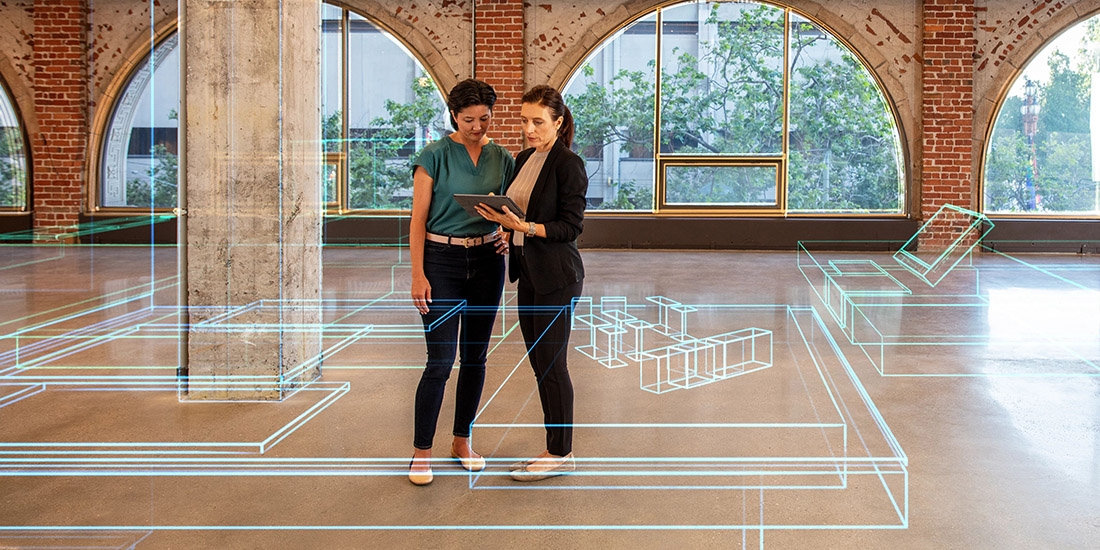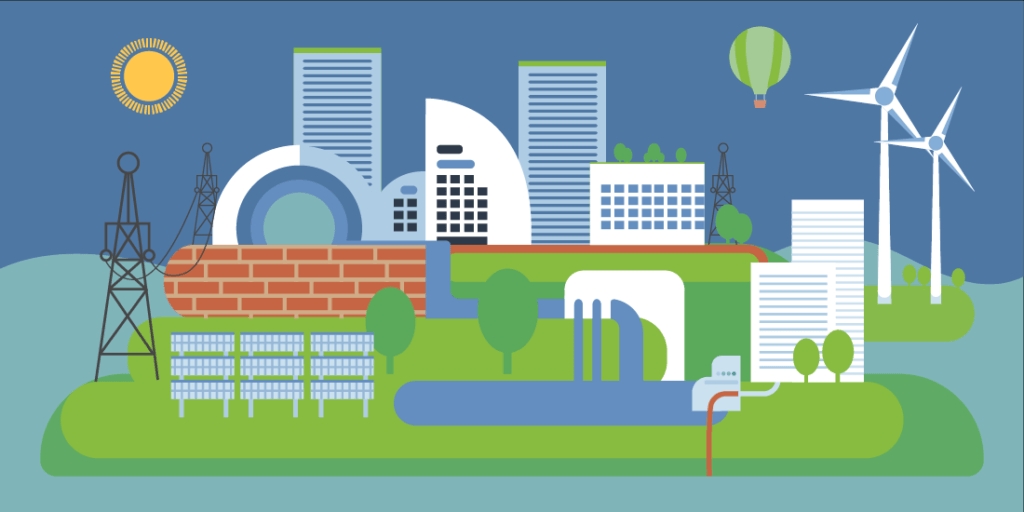Gen Z and sustainability are the powerhouse duo remaking the workplace
As Gen Z’s representation increases in the workplace, so does its influence—particularly when it comes to upping sustainability efforts to fight climate change.

Shawn Radcliffe
June 11, 2024 • 5 min read
Gen Z will make up 31% of the global workforce by 2035—two recent reports show the generation’s positive influence on corporate sustainability practices.
This emerging cohort is deeply concerned about climate change, taking action in their own lives and in the workplace.
Leaders across industries report that Gen Z is influencing their sustainability policies, but greater transparency may be needed to retain Gen Z employees.
For companies today, a driving force behind increasing sustainability practices is Gen Z—those born between the late 1990s and early 2010s—both as a workforce and as consumers. This generation is deeply concerned about the negative impacts of climate change, taking action in their own lives and pushing their employers to do the same. Gen Z currently makes up 27% of the global workforce. That share is expected to grow to 31% by 2035 and will have a massive influence on the future of sustainability initiatives in the workplace.
2024 State of Design & Make report’s key findings
According to Autodesk’s 2024 State of Design & Make report, 97% of organizations are already taking steps to improve sustainability—a five-point increase over 2023—showing the issue has become a priority for most companies.
The State of Design & Make report is based on surveys and interviews conducted by Autodesk with almost 5,400 leaders, futurists, and experts from the architecture, engineering, construction, and operations (AECO); design and manufacturing (D&M); and media and entertainment (M&E) industries from countries around the world.
Sustainability initiatives across these industries include using artificial intelligence (AI) to optimize decision-making during the conceptual design phase, increasing the use of recycled materials and renewable energy, investing more in energy-efficient processes and equipment, and making efforts to reduce waste.
Although sustainability is good for the planet, companies’ embrace of this approach stems, in part, from a growing realization that it is also good for the bottom line: 69% of leaders and experts say sustainability is beneficial for businesses over the short-term, with 87% saying the same for long-term success, according to the report.
For example, sustainability efforts can decrease operating costs by reducing material and energy use. They can also improve organizations’ reputations with customers and employees—many of whom now see sustainability as essential for any business.
“Regardless of [people’s] age, climate change poses a significant existential threat around the globe, and we must work as a global community to make meaningful change,” says Hafsa Burt, founder and studio head of California-based hb+a Architects. “This needs to start with accountability.”

Gen Z influence across industries
Forces are converging that motivate companies to move toward greater sustainability, with more than four out of five State of Design & Make respondents saying they face pressure from government regulators, customers, employees, and investors to be more sustainable. Currently, 36% of leaders and experts say employees are “very influential” in encouraging them to create and meet sustainability goals, up from 23% last year.
Although the impacts of climate change will be felt most strongly by younger generations, no single age group is responsible for driving sustainability initiatives across industries. “We have a lot of people who have been active in this space through choices, advocacy, policymaking, and practice for decades,” Burt says.
However, “Gen Z has more awareness [of sustainability] because of access to information and data,” she says. As a result, the influence of employees on sustainability efforts extends to younger generations, with the State of Design & Make report showing similar rates across industries:
AECO industry: About one-third of respondents say the next generation is “very influential” in encouraging their companies to become more sustainable, with the highest rate (41%) among the mining, oil, and gas sectors.
D&M industry: The percentage of leaders and experts who say the next generation is “very influential” in driving sustainability initiatives ranged from 29% in the building products and fabrication sector to 40% in the industrial machinery sector.
M&E industry: More than four in 10 respondents in the film, TV, and games sectors say the next generation is “very influential” in motivating their companies’ sustainability efforts, with a lower rate (32%) in the advertising, publishing, and graphic design sectors.

Turning worry and anxiety into positive action
Climate change impacts everyone, but research suggests that it weighs especially heavily on the minds of younger generations. According to Deloitte Global’s 2024 Gen Z and Millennial Survey, climate change is a major concern for younger generations, with six in 10 Gen Zs saying that they felt worried or anxious about climate change in the past month.
Many are channeling their worries into positive actions—the report found that 73% of Gen Zs say they are taking steps to minimize their own impact on the environment, such as avoiding buying fast fashion, eating a vegetarian or vegan diet, or reducing air travel.
They are also pushing for change in the workplace. According to the survey, 54% of Gen Zs report pressuring their employers to take action on climate change. Slightly more agree that their employers are working to address climate change, though they believe more progress is needed.
Although these findings fit with what leaders and experts in the AECO, D&M, and M&E industries are seeing, younger employees may not feel their actions are having much impact, and they are willing to change jobs or even industries as a result. According to Deloitte Global’s survey, 20% of Gen Zs have changed jobs or industries because of environmental concerns, and another 26% plan to do so in the future. When changing roles, 72% of Gen Zs say a potential employer’s environmental credentials and policies are important considerations.
These trends suggest that organizations need to improve how they communicate to employees and job applicants about their strategies for minimizing the impacts of climate change. “There is an expectation of transparency and openness, and employers need to openly communicate their goals and progress toward sustainability,” Burt says. “There is a strong need to prioritize social responsibility benefiting local and global communities, as well as transparency about ethical labor practices throughout a company’s supply chains.”

About the author

Shawn Radcliffe
Shawn Radcliffe is an Ontario, Canada–based freelance journalist and yoga teacher, specializing in writing stories about health, medicine, science, architecture, engineering, and construction, as well as yoga and meditation. Reach him at ShawnRadcliffe.com.

